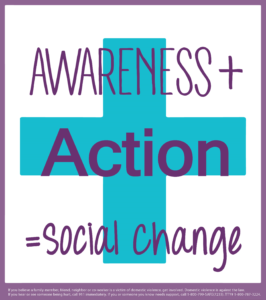October is Domestic Violence Awareness Month, and during this time, not only is it important to raise awareness about the dynamics and prevalence of domestic violence, but also we want to highlight the associations between domestic violence and mental health in order to underscore why Mental Health Matters.
The National Center on Domestic Violence, Trauma and Mental Health (NCDVTMH) compiles information about the effects of intimate partner violence, and over the past 30 years, research has shown that being victimized by an intimate partner increases the risk of developing mental health conditions, including: depression, PTSD, deliberate self-harm, suicidality, substance abuse, eating disorders, anxiety and other mood disorders. Furthermore, people who experience mental-health related needs are at a greater risk of being victimized by an abusive partner. To compound these concerns, survivors of domestic violence face having their mental health needs and/or substance use utilized against them; abusers exploit these needs to “control their partners; undermine them in custody battles; and discredit them with friends, family, child protective services and the courts” (NCDVTMH).
These concerns demonstrate why it is crucial to raise awareness about the dynamics of domestic violence, the barriers survivors face in leaving and the ways to support them. The myths that persist about domestic violence make it much harder for people to ask for and receive the supports they need and deserve. For example, people of all gender identities and sexual orientations can be victims of intimate partner violence. Additionally, physical abuse is just one type of relationship violence; survivors face emotional, sexual and financial abuse, all of which can have devastating long-term effects. Dispelling these myths is vital in ensuring all survivors can access services.
It is equally important to reduce stigma around mental health. Mental health resources should be available and accessible for all people, and we should applaud individuals for being proactive about their health. Mental health matters for everyone, and at the San Miguel Resource Center we will continue to advocate for the mental health needs of survivors of domestic violence and sexual assault. We are here to listen 24/7, call 1-844-816-3915 or for more information visit www.smrcco.org!
-Riley McIntyre, Executive Director, San Miguel Resource Center


